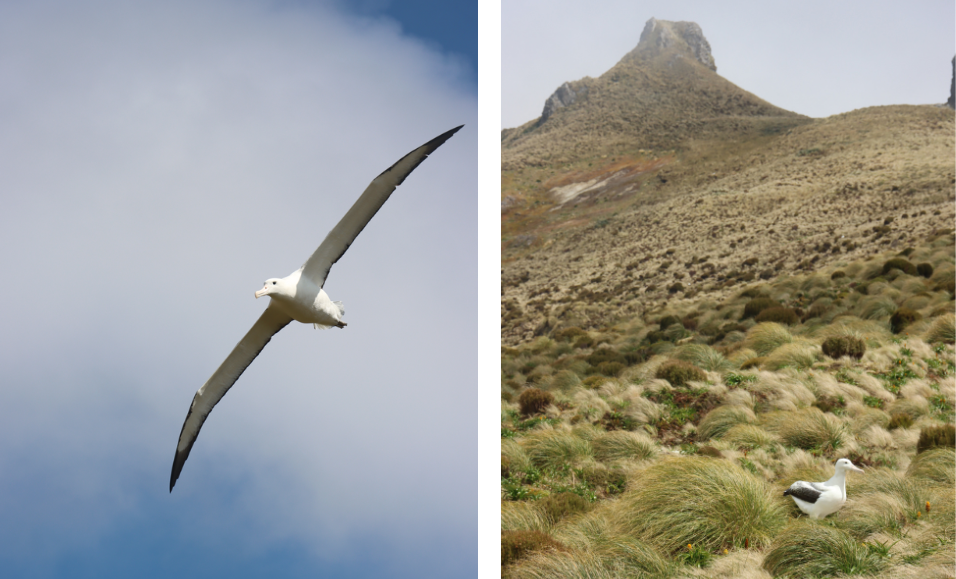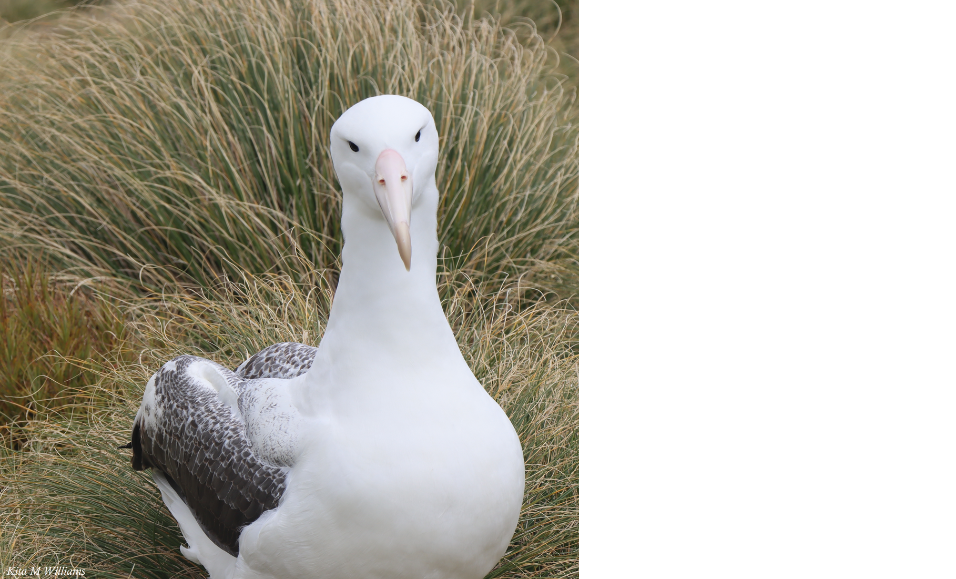Celebrate World Albatross Day

Southern Royal Albatross on Campbell Island. Credit: Kita Williams

Albatrosses spend their entire lives at sea only returning to land to breed. Credit: Kita Williams

99% of Southern Royal Albatrosses breed on Campbell Island. Credit: Kita Williams
World Albatross Day is an annual celebration that occurs on 19 June, the date the Agreement on the Conservation of Albatrosses and Petrels (ACAP) was signed in 2001.
It aims to increase awareness of the continuing conservation crisis faced by 31 species of albatrosses, petrels and shearwaters.
This year’s theme, “Plastic Pollution”, highlights the damaging effects of plastics and other pollutants on albatrosses. Plastics floating on the surface of the ocean are often mistaken for food and ingested. They can become trapped in the gut and cause fatal blockages, leading to a slow death by starvation.
Plastic string and rope can cause entanglements, while some plastics leak chemical contaminates into the marine environment. Plastic drink bottles, disposable utensils and balloons are among the most deadly items.
Dr Mike Double, Chair of the ACAP Advisory Committee and a Principal Research Scientist with the Australian Antarctic Program said that although invasive species at breeding sites and bycatch in fisheries are the biggest threats to these birds, vast amounts of plastic debris in our oceans is contributing to their decline.
“Impacts of plastic debris are particularly severe in the albatrosses of the North Pacific where almost all chicks will ingest plastics in the food provided by their parents. However, in the southern hemisphere the amount of plastic debris is increasing and plastic is now commonly detected in the stomachs of beach-cast albatrosses.”
Stronger adherence to multilateral agreements, such as the Agreement on the Conservation of Albatrosses and Petrels, which aims to reduce the impact of activities known to kill these seabirds, will help prevent their decline. As will global cooperation to reduce the leakage of plastic items into the ocean.
To raise awareness of the threats facing albatrosses, the ACAP has produced resources including a logo, artworks, posters and infographics. They are freely available for use and can be found on the ACAP website.
About the author
Anna Quinn
Anna is SAEF’s the Senior Communications Adviser.